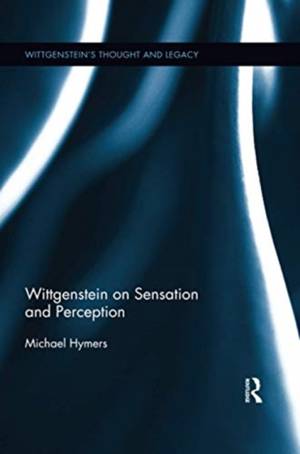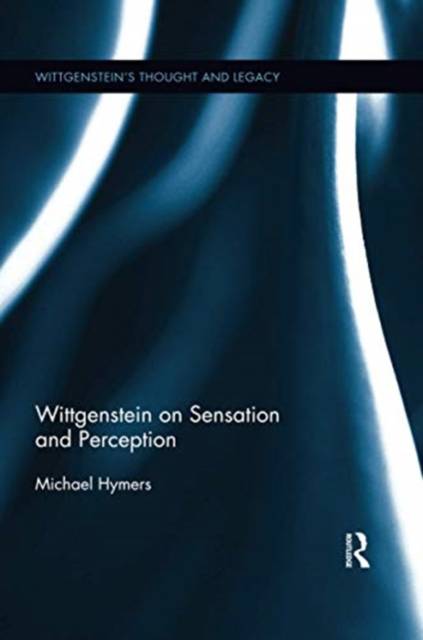
- Retrait gratuit dans votre magasin Club
- 7.000.000 titres dans notre catalogue
- Payer en toute sécurité
- Toujours un magasin près de chez vous
- Retrait gratuit dans votre magasin Club
- 7.000.000 titres dans notre catalogue
- Payer en toute sécurité
- Toujours un magasin près de chez vous
Description
This book offers two novel claims about Wittgenstein's views and methods on perception as explored in the Philosophical Investigations. The first is an interpretive claim about Wittgenstein: that his views on sensation and perception, including his critique of private language, have their roots in his reflections on sense-datum theories and on what Hymers calls the misleading metaphor of phenomenal space. The second is a major philosophical claim: that Wittgenstein's critique of the misleading metaphor of phenomenal space is of ongoing relevance to current debates concerning first-person authority and the problem of perception because we are still tempted to draw inferences about the phenomenal that only apply to the physical. Many contemporary discussions of these topics are thus premised on the very confusions Wittgenstein sought to dispel. This book will appeal to Wittgenstein scholars who are interested in the Philosophical Investigations and to philosophers of perception who may think that Wittgenstein's views are mistaken, irrelevant, or already adequately appreciated.
Spécifications
Parties prenantes
- Auteur(s) :
- Editeur:
Contenu
- Nombre de pages :
- 216
- Langue:
- Anglais
- Collection :
Caractéristiques
- EAN:
- 9780367595487
- Date de parution :
- 30-06-20
- Format:
- Livre broché
- Format numérique:
- Trade paperback (VS)
- Dimensions :
- 150 mm x 226 mm
- Poids :
- 317 g







